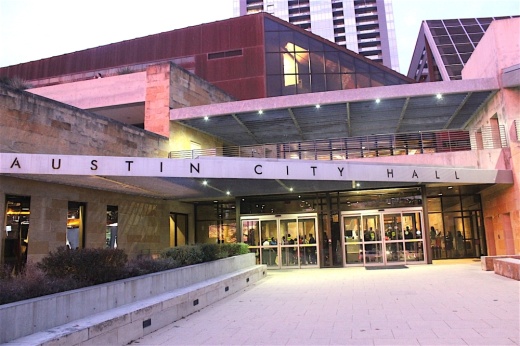The July report from UT's LBJ School of Public Affairs outlined how Austin has recently fared in its City Council-backed goal of becoming more open and accessible to foreign-born residents. The study was led by UT professor Ruth Ellen Wasem, who shared her findings with Austin's Commission on Immigrant Affairs Oct. 4.
Wasem's research narrowed to the mixed results tracked in Austin in the areas of leadership and governance, civic engagement, economic prosperity, livability, and community resilience. The study was based on past U.S. Census Bureau demographics and metrics pulled from the New American Economy Cities Index tracking immigrant integration nationwide.
Austin has seen its NAE index score move up in recent years, which Wasem pointed to as a sign of progress, although it still remains in the middle of the pack compared with the 100 largest U.S. cities and peer cities of similar sizes and demographics. Austin also enjoys higher scores related to policy and government than its rankings for socioeconomic factors: job opportunity, civic participation and a "concerningly low" livability mark, Wasem said.
“For a city that prides itself as Austin does, this is something where we should be doing better," she said.
Wasem also pointed to Austin's status as a "national gateway" for immigration as a civic and social benefit that could be improved for better outcomes citywide. While her report is geared toward immigrants, she said recommendations to cement affordable housing options, increase wages and make city resources available in multiple languages are steps that are not exclusive to the nearly one-fifth of Austinites born abroad.
"I see most of the things you do to incorporate immigrants as things that are good for everybody," she said. "It's less about having narrow-sliced programs to deal with vulnerable populations. ... It’s thinking about, 'What are the things we’re doing for everybody?' And making sure that immigrants are part of all these programs and that they’re accessible to everybody."
Other recommendations in the UT report cover naturalization, entrepreneurial resources and immigrant involvement in city life. Overall however, Wasem said a top priority tied to improving the local immigrant experience could be the creation of a dedicated government office for new foreign-born residents. While Austin hired its first immigrant affairs staffer last March, her work is contained within the city Equity Office and has less influence than that of full-scale immigrant offices in many peer cities, Wasem said. She also cited Dallas, Houston, Denver, Charlotte and Atlanta as examples of comparable cities that have successfully opened immigrant affairs offices—most of which have higher overall NAE scores.
“You really need an administrative home to coordinate and oversee these efforts. An elevated, administrative home," she said.
The immigrant affairs commission is now considering how working groups based around the UT report's five main areas of focus could tie to city policy. The small teams' subject-specific work could gather input from the community on immigrants' participation in local government, workforce development and pay disparities, housing and the expansion of neighborhood hubs.
Commission Chair Krystal Gomez said the working group process could inform future recommendations for city officials, including funding asks during next year's budget discussions. In a September memo, Chief Equity Officer Brion Oaks also said his office and its immigrant affairs coordinator will work with the commission to craft budget recommendations based on the results of the report.





